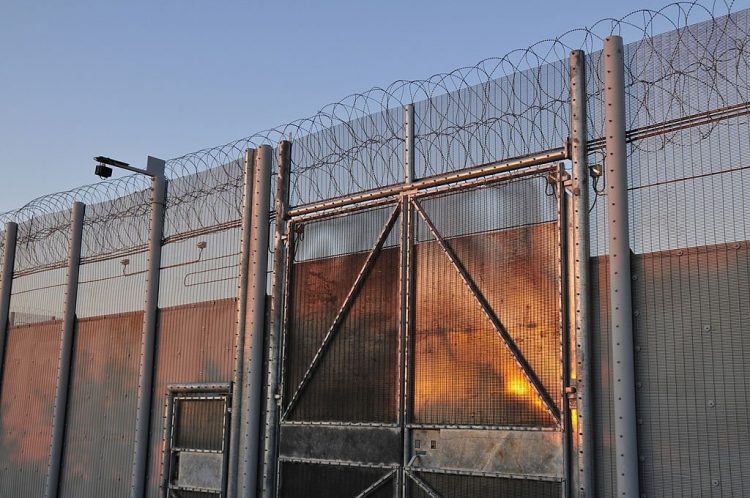The issue of inmate rights and welfare in the United Kingdom has become a prominent topic of discussion. Even though incarcerated individuals have limited rights due to their confinement, they still possess essential fundamental rights as outlined by international human rights standards. It is crucial for authorities to fulfill their obligation in upholding inmates’ rights, ensuring their security, preserving their dignity, and promoting their well-being. However, there have been instances in which prisoner’s specific rights have been violated in the UK, leading to increased attention on this matter.
Behind Those Locked Doors: What Really Happens in Prisons?
Inmates in the United Kingdom enjoy transparent rights and well-being that are easily understood by British citizens. The Gov.UK website outlines that prisoners who comply with regulations can obtain privileges through the ‘Incentives and Earned Privileges Scheme’. This initiative allows inmates to receive more frequent visits from family or friends and an increased weekly allowance for expenses.
The specific privileges granted may differ based on each individual prison’s policies. Prison staff members are readily available to clarify any questions regarding how the scheme operates for inmates. Additionally, prisoners have various rights, including protection against bullying and racial harassment, as well as access to legal representation when needed. They also possess the right to healthcare services, which encompass support for mental health conditions.
Human rights in prisons
Prisoners possess specific entitlements. They hold the entitlement to humane treatment during their incarceration. As the Human Rights Organization indicates, every incarcerated individual is entitled to be treated respectfully, acknowledging their intrinsic dignity and worth as human beings. Discrimination based on race, colour, sex, religion, language, political or other opinions is strictly prohibited. Likewise, discrimination based on national or social origin, wealth, birth, or other status is impermissible. While honouring the inmate’s community’s religious beliefs and cultural values is advisable, it is crucial to uphold these principles.
Human rights in the UK
According to Amnesty International UK, safeguarding our human rights within the UK is currently ensured by the Human Rights Act of 1998. This legislation outlines the rights and liberties all individuals in the UK are entitled to.
From women seeking refuge from domestic violence to disabled individuals seeking adequate support, the Human Rights Act is pivotal in empowering people to combat injustice. It holds accountable those who wield authority, compelling public officials in the UK to treat all individuals with fairness, parity, and respect. Regrettably, the integrity of the Human Rights Act is at risk due to the UK government’s repeated commitments to abolish it. We must not permit politicians to transform universal freedoms into privileges granted solely to a
select few, depriving UK people of equitable access to justice.
Violation of prisoners’ rights in the UK
A report by University College London (March 2019) presents trends in the UK prison system over the past decade. The report refers to the worsening conditions and safety concerns. The report says the quantitative data about the rapid worsening of prison security makes for alarming reading. Over the last decade, the number of inmate deaths has almost doubled, as has the number of inmates who self-harm. Moreover, the number of prisoner suicides has increased by a quarter.
Unveiling Assaults and Force Employed in the UK Prison System
The number of assaults in prisons has doubled. Moreover, the number of serious assaults has tripled. Proportionally, more of these assaults have targeted prison staff. Moreover, from a qualitative perspective, prison conditions have worsened. Many prisoners spend twenty- two hours a day in their cells, which are often cramped and have poor hygiene standards.
As reported by The Guardian on January 3, 2021, instances of employing force against prisoners in the UK have doubled over the past decade. The persistent concern revolves around the elevated levels of disorder and violence observed within the prison system. The escalation in the use of force has been attributed to factors such as the depletion of experienced staff, overcrowding, and the surge in violence. Based on available data, force employment occurred 59.1 times per 100 inmates from April 2019. By comparison, the most recent earlier figures, released in 2011-12, indicated that force was used approximately 27 times per 100 prisoners. Experts assert that these findings mirror the prevalent turmoil within the UK prison system. The European Committee for the Prevention of Torture, which operates under the Council of Europe, characterized this upheaval as a “profound crisis.” The committee’s evaluation of the prisons it visited described them as “marked by violence, insecurity, and overcrowding.”
The UK Government responsible for inmates’ death
Various laws and regulations have set out prisoners’ rights. Inmates have the right to be protected from abuse and mistreatment. They have the right to be protected from violence while in prison. However, the UK government does not care about inmates’ certain rights and welfare protections.
According to STV, the chief inspector of prisons, Wendy Sinclair-Gieben, refers to the terrible conditions in UK prisons. She says the treatment of inmates is the worst she has faced during her term of office. Her report says it is “extremely disappointing” long-term problems have not been resolved.
The officials do not treat prisoners humanely and with dignity in the UK. Such maltreatment has led to the death of many prisoners. According to Gov.UK, in the 12 months to September 2021, there were 396 deaths in prison custody. This figure is an increase of 40% from 283 deaths in the previous 12 months. Of these deaths, 81 were self-inflicted. This figure shows a 13% rise from the 72 self-inflicted deaths in the last 12 months.





























